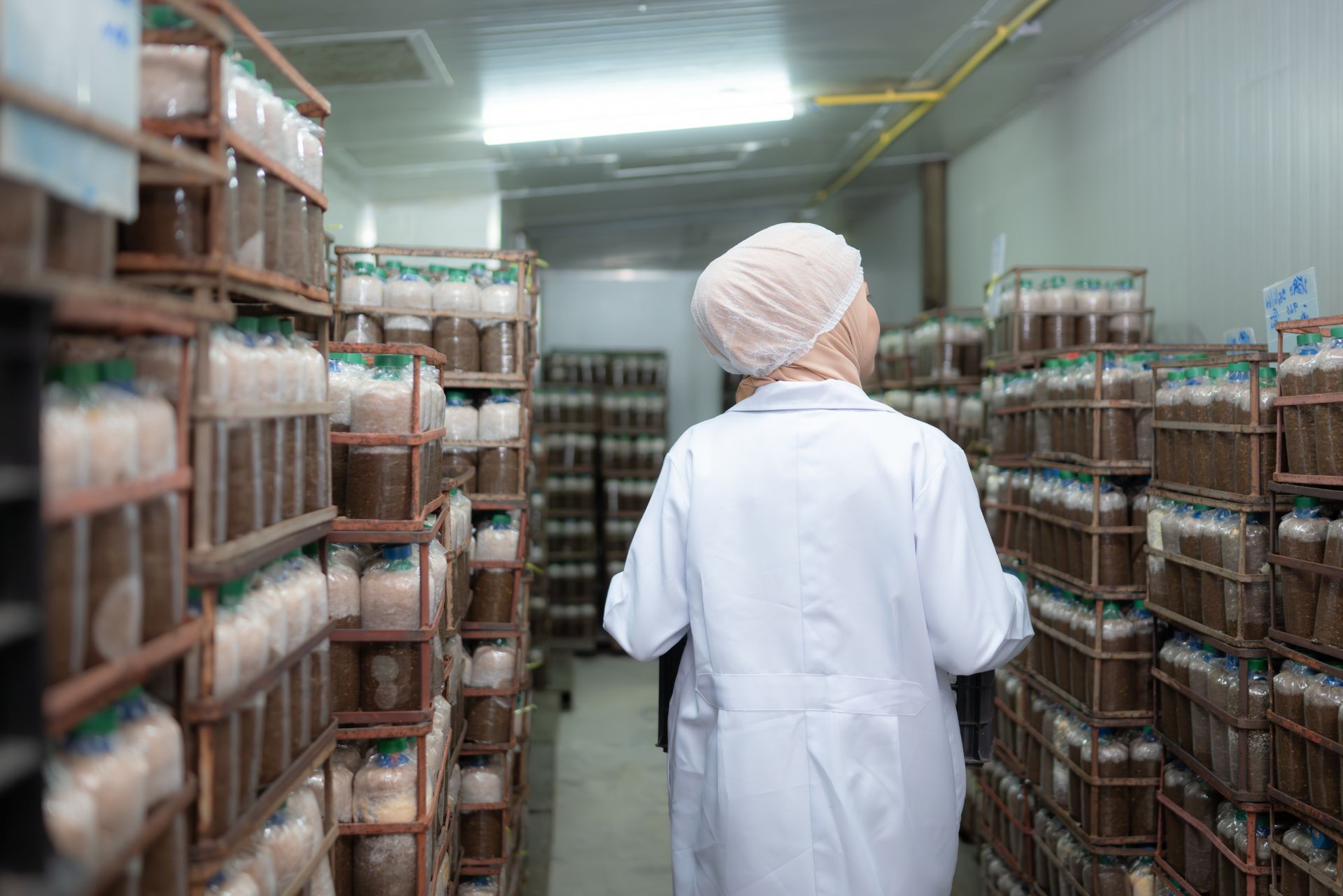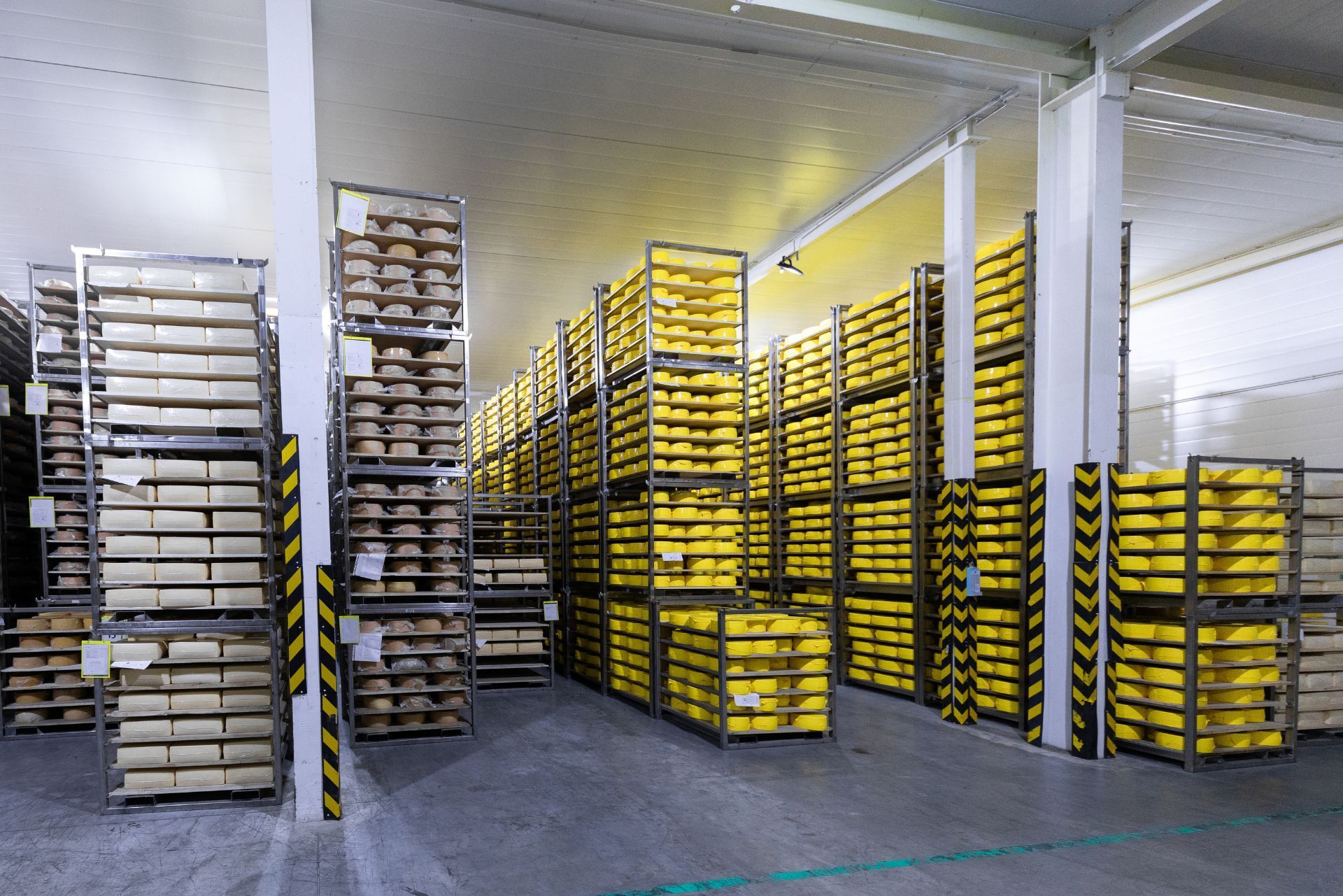
Top 3 Recommended Policies

In the vast landscape of the Texas economy, cold storage facilities play a crucial role in the supply chain. These facilities are essential for businesses that deal with perishable goods, ensuring that products remain fresh and safe for consumption. However, operating a cold storage facility comes with its own set of risks. This is where cold storage insurance becomes a vital component of risk management. This article delves into the intricacies of Texas cold storage insurance, covering everything from the types of coverage available to the specific risks faced by these facilities.
Understanding Cold Storage Insurance
Cold storage insurance is a specialized form of coverage designed to protect businesses that store perishable goods under temperature-controlled conditions. This type of insurance is particularly important in Texas, where the climate can pose unique challenges to maintaining the integrity of stored products. The state's high temperatures and humidity levels can lead to increased risks of spoilage and equipment failure, making adequate insurance coverage not just a precaution, but a necessity for many businesses in the food and pharmaceutical industries.
What Does Cold Storage Insurance Cover?
Cold storage insurance typically covers a range of risks associated with the storage of perishable goods. These may include:
- Damage to stored goods due to equipment failure
- Loss of inventory due to power outages
- Theft or vandalism of the facility
- Liability for injuries occurring on the premises
Each policy may vary in its specifics, so it’s crucial for business owners to understand what is included and what is excluded in their coverage. Customizing a policy to fit the unique needs of a cold storage facility can help mitigate potential losses effectively. Additionally, some policies may offer coverage for spoilage due to temperature fluctuations, which can be particularly relevant for businesses that rely on precise climate control to maintain product quality.
Types of Coverage Available
There are several types of coverage options available for cold storage facilities. Understanding these can help business owners choose the right policy for their needs:
- Property Insurance: Covers the physical assets of the cold storage facility, including the building, equipment, and inventory.
- Business Interruption Insurance: Provides coverage for lost income during periods when the business cannot operate due to covered events.
- Liability Insurance: Protects against claims of bodily injury or property damage that may occur on the premises.
Choosing the right combination of these coverages can provide comprehensive protection for cold storage operations. Furthermore, it is wise for business owners to consider additional endorsements or riders that can enhance their policies. For instance, coverage for natural disasters, such as hurricanes or floods, may be particularly relevant in Texas, where such events can disrupt operations and lead to significant financial losses. Additionally, businesses may want to explore options for coverage that addresses the specific needs of their inventory, such as organic or specialty products that may have different storage requirements.
The Importance of Cold Storage Insurance in Texas
Texas is home to a diverse range of industries, many of which rely on cold storage for their operations. From food and beverage companies to pharmaceuticals, the need for reliable cold storage insurance is paramount.
Risks Unique to Texas Cold Storage Facilities
Operating a cold storage facility in Texas comes with specific risks that can impact the operation:
- Extreme Weather Conditions: Texas is known for its unpredictable weather, including severe storms and heatwaves that can affect power supply and refrigeration systems.
- Equipment Failures: Cold storage relies heavily on refrigeration equipment, which can fail unexpectedly, leading to significant losses.
- Regulatory Compliance: The food and pharmaceutical industries are subject to strict regulations, and non-compliance can lead to hefty fines and losses.
Having the right insurance coverage can help mitigate these risks and ensure that businesses remain operational even in the face of challenges. Additionally, the geographical diversity of Texas means that cold storage facilities may be located in areas prone to flooding, wildfires, or even tornadoes, further emphasizing the need for comprehensive insurance that addresses these unique threats.
Financial Protection Against Losses
Cold storage insurance provides financial protection against the losses incurred due to unforeseen events. Whether it’s a power outage that leads to spoilage or damage caused by a natural disaster, having insurance can help cover the costs associated with these incidents. This financial safety net allows businesses to recover more quickly and maintain their operations without significant financial strain. Moreover, the insurance can also cover the costs of temporary relocation or alternative storage solutions, which can be crucial for maintaining supply chain integrity during emergencies.
Furthermore, many insurance policies offer additional services such as risk management consultations and loss prevention strategies, which can be invaluable for businesses looking to minimize their exposure to risks. By working closely with insurance providers, cold storage operators can implement best practices that not only protect their assets but also enhance their operational efficiency. This proactive approach not only safeguards their investments but also builds trust with clients who rely on the integrity of their stored products.

How to Choose the Right Cold Storage Insurance Policy
Selecting the right cold storage insurance policy requires careful consideration of various factors. Business owners should take the time to evaluate their specific needs and risks to find a policy that fits their operations.
Assessing Your Risks
The first step in choosing a cold storage insurance policy is to conduct a thorough risk assessment. This involves evaluating the types of products stored, the facility’s location, and any potential hazards that could affect operations. Understanding these risks will help in determining the necessary coverage amounts and types. For instance, if your facility is located in an area prone to natural disasters, such as floods or earthquakes, you may need additional coverage to protect against these specific threats. Similarly, if you store perishable goods, the risk of spoilage due to equipment failure or power outages should be factored into your assessment, as this can significantly impact your bottom line.
Working with an Insurance Agent
Partnering with an experienced insurance agent who specializes in cold storage insurance can provide valuable insights. An agent can help navigate the complexities of different policies and ensure that the coverage aligns with the specific needs of the business. They can also assist in finding competitive rates and understanding the fine print of each policy. Moreover, a knowledgeable agent will be familiar with industry trends and can recommend additional endorsements or riders that may enhance your coverage, such as business interruption insurance, which can help mitigate losses during unexpected downtimes.
Reviewing Policy Limits and Deductibles
When selecting a policy, it’s essential to review the coverage limits and deductibles. Higher coverage limits may provide better protection but can also lead to higher premiums. Conversely, lower deductibles may result in lower out-of-pocket costs during a claim but could mean higher premiums. Balancing these factors is key to finding a policy that offers both adequate protection and affordability. Additionally, it’s wise to periodically reassess your coverage limits as your business grows or changes. For example, if you expand your storage capacity or diversify the types of products you handle, your insurance needs may evolve, necessitating adjustments to your policy to ensure continued protection against emerging risks.
Common Exclusions in Cold Storage Insurance Policies
While cold storage insurance provides extensive coverage, it’s important to be aware of common exclusions that may exist in policies. Understanding these exclusions can help business owners avoid surprises during the claims process.
Excluded Perils
Many cold storage insurance policies may exclude certain perils, such as:
- Natural Disasters: Some policies may not cover losses due to earthquakes, floods, or other natural disasters unless specifically included.
- Negligence: Losses resulting from negligence, such as failure to maintain equipment properly, may not be covered.
- Wear and Tear: Routine wear and tear on equipment is typically not covered by insurance policies.
Being aware of these exclusions can help businesses take proactive measures to mitigate risks that may not be covered by their insurance policy. For instance, investing in regular maintenance schedules and training staff on proper equipment handling can significantly reduce the likelihood of negligence claims. Additionally, businesses located in areas prone to natural disasters might consider supplementary coverage or specific policies designed to address those unique risks, thus ensuring a more comprehensive safety net.
Importance of Regular Policy Reviews
Regularly reviewing insurance policies is essential for cold storage facilities. As businesses grow and evolve, their insurance needs may change. Conducting annual reviews with an insurance agent can help ensure that coverage remains adequate and that any new risks are addressed. This proactive approach can prevent gaps in coverage and ensure that businesses are adequately protected against potential losses. Furthermore, during these reviews, it is beneficial to assess the latest industry trends and emerging risks, such as cyber threats or changes in food safety regulations, which could impact operations. By staying informed and adjusting policies accordingly, business owners can not only safeguard their assets but also enhance their overall operational resilience in an ever-changing market landscape.
Claims Process for Cold Storage Insurance
Understanding the claims process is crucial for any business owner. In the event of a loss, knowing how to navigate the claims process can make a significant difference in the recovery time. Cold storage facilities, which often deal with perishable goods, have unique challenges that can complicate the claims process. For instance, the rapid deterioration of inventory can lead to significant financial losses if claims are not handled promptly and efficiently.
Steps to File a Claim
Filing a claim typically involves several steps:
- Notify the Insurance Company: As soon as a loss occurs, the first step is to notify the insurance company. Most policies have specific timeframes for reporting claims. Prompt notification not only adheres to policy requirements but also helps in the swift mobilization of resources to assess the situation.
- Document the Loss: Gather evidence of the loss, including photographs, inventory lists, and any relevant documentation. This information will be crucial for the claims adjuster. Detailed records of the items stored, their value, and the conditions leading to the loss can significantly strengthen your claim.
- Work with the Adjuster: The insurance company will assign a claims adjuster to evaluate the loss. Cooperating with the adjuster and providing all necessary information can help expedite the process. It’s advisable to maintain open lines of communication and be ready to answer any questions they may have regarding the incident.
Following these steps can help ensure a smoother claims experience and facilitate a quicker resolution. Additionally, keeping a copy of all correspondence and documentation related to the claim can be beneficial in case of any disputes or follow-up inquiries.
Common Challenges in the Claims Process
While the claims process may seem straightforward, there can be challenges that arise:
- Disputes Over Coverage: There may be disagreements about what is covered under the policy, leading to delays in the claims process. It's essential to thoroughly review your policy details and understand the specific coverage limits and exclusions to avoid surprises during a claim.
- Insufficient Documentation: Failing to provide adequate documentation can result in claim denials or reduced payouts. Keeping meticulous records of inventory, including purchase receipts and storage conditions, can help mitigate this risk.
- Lengthy Investigations: Some claims may require extensive investigations, prolonging the time it takes to receive a payout. This can be particularly problematic for cold storage businesses, where time is of the essence in preventing further losses.
Being prepared and understanding the potential challenges can help business owners navigate the claims process more effectively. Additionally, engaging with a knowledgeable insurance broker who specializes in cold storage insurance can provide valuable insights and assistance throughout the claims process, ensuring that you are adequately supported during these critical times. They can also help you identify any gaps in your coverage that could lead to complications in the future.
Cost Factors for Cold Storage Insurance
The cost of cold storage insurance can vary widely based on several factors. Understanding these cost determinants can help business owners budget appropriately for their insurance needs.
Factors Influencing Premiums
Several key factors can influence the premiums associated with cold storage insurance:
- Location: Facilities located in areas prone to natural disasters or high crime rates may face higher premiums.
- Size of the Facility: Larger facilities with more inventory may require higher coverage limits, leading to increased premiums.
- Type of Goods Stored: The nature of the products stored can also impact premiums. For example, high-value items may result in higher insurance costs.
Understanding these factors can help business owners make informed decisions when selecting their insurance policies.
Ways to Reduce Insurance Costs
There are several strategies that businesses can employ to reduce their cold storage insurance costs:
- Implement Risk Management Practices: Taking proactive steps to mitigate risks, such as regular equipment maintenance and staff training, can lead to lower premiums.
- Increase Deductibles: Opting for higher deductibles can lower premium costs, although it’s essential to ensure that the business can afford the out-of-pocket expenses in the event of a claim.
- Bundle Policies: Many insurers offer discounts for bundling multiple policies, such as property and liability insurance.
By employing these strategies, businesses can potentially save on their insurance premiums while maintaining adequate coverage.

Conclusion
Cold storage insurance is a critical component of risk management for businesses operating in Texas. With the unique challenges posed by the state's climate and the specific needs of cold storage facilities, having the right insurance coverage is essential for protecting assets and ensuring business continuity. By understanding the types of coverage available, assessing risks, and navigating the claims process, business owners can make informed decisions that safeguard their operations.
As the industry continues to evolve, staying informed about the latest trends and best practices in cold storage insurance will empower businesses to thrive in a competitive landscape. Whether you are a seasoned operator or just starting, investing time in understanding cold storage insurance is a step toward securing a successful future.
Contact Us

